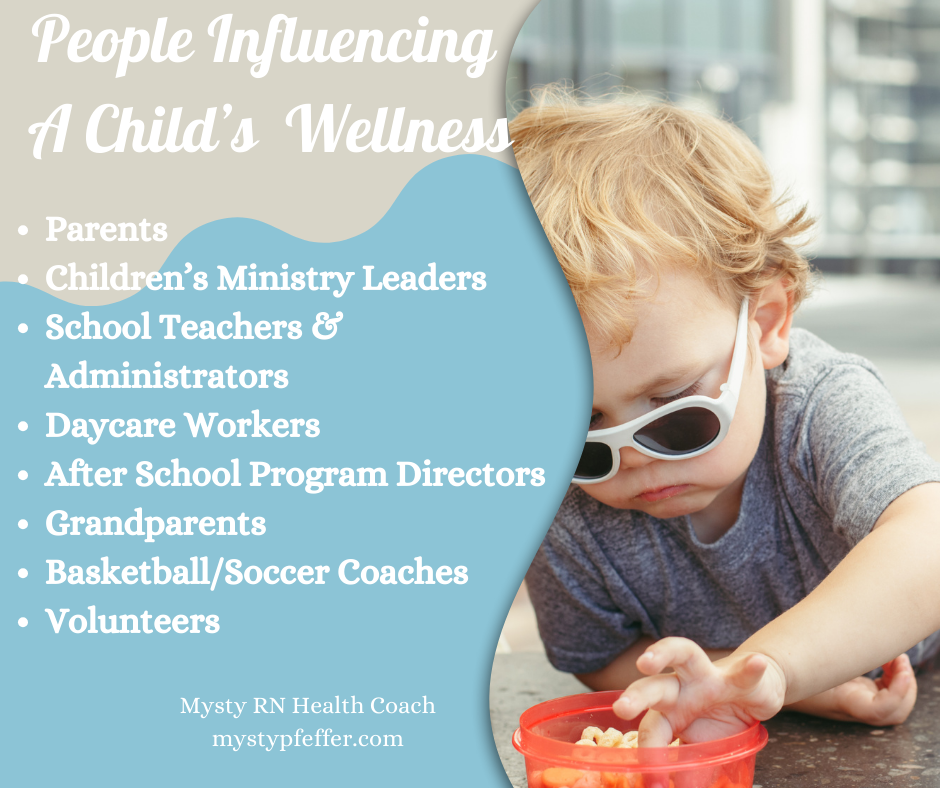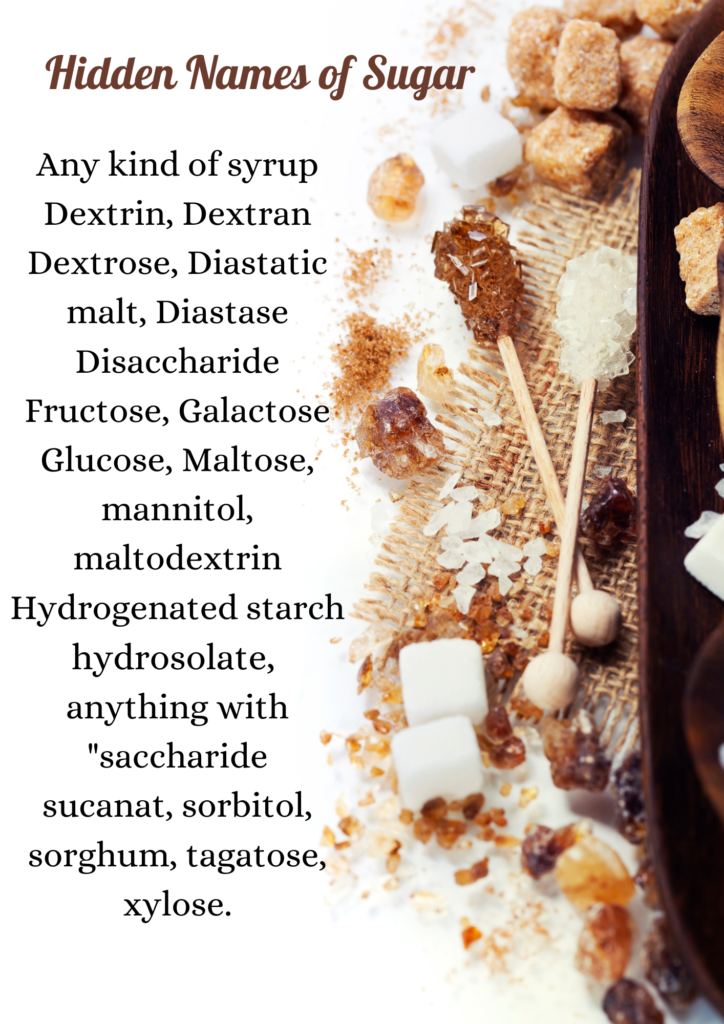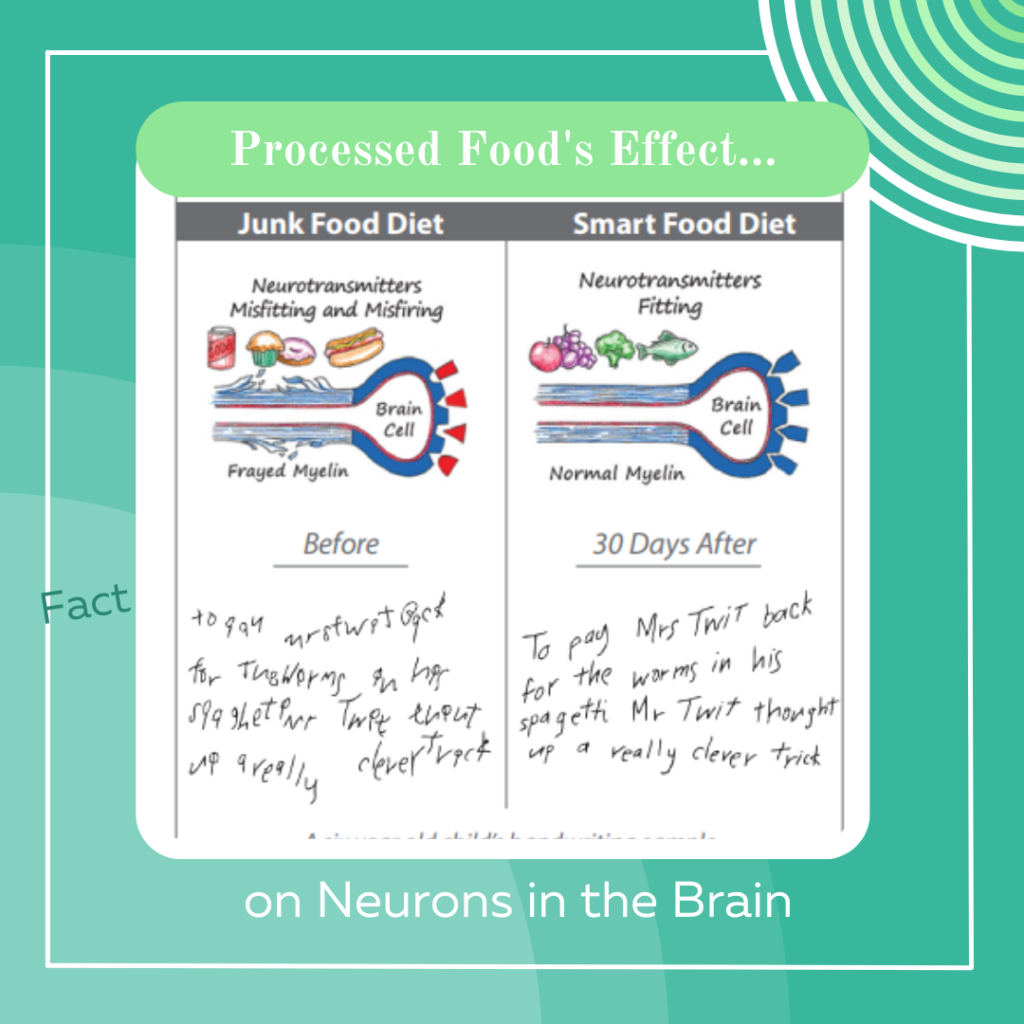Train up a child in the way he should go;
Proverbs 22:5-7 ESV – Thorns and snares are in the way of the – Bible Gateway
even when he is old he will not depart from it.
Sugar is Culturally Ingrained
If your life started out like mine, with a lot of exposure to sugar and processed food, you’ll appreciate this post. The sneaky substance I couldn’t resist growing up began to impact my health in my twenties. In fact, if I had not given birth to my girls in my early twenties, polycystic ovarian syndrome at 29 may have diminished my chances of conceiving.
Looking back, I see how my mom, tried to feed me a balanced diet by offering green vegetables with a starch and protein. However, like many families, I could not escape the junk.
Junk, of course, is the sugar laden, convenience food, our culture is ingrained in. Throw in a couple of picky eaters, like me, and it makes balancing a meal for today’s child almost impossible. They resist most vegetables and are well known for their love of cookies and chips. I know, because I was a “cookie monster”.

However, my mom didn’t give up, she kept offering my siblings and I vegetables at dinner. When I was nine, we moved to a bigger house with an amazing yard full of fruit trees. My dad borrowed a tiller, and we started our first garden. It was also around that time when I began to like my vegetables.
I can’t tell you how much I love and appreciate my mom for giving me a good start with her faith in the Lord and her attempts to feed me well. She set an example of what to place first in an eating plan and taught me what mattered most in raising my own children.
It wasn’t perfect by any means! But it was an effort of love.

The rule in my home when I grew up was for my children to try the healthy food three times and take three bites each time, they try it. Like my own childhood, there were still cookies, cakes, pies, candy, chips, and sodas at hand.
However, they were limited and only available after a meal had been eaten. Plus, I did not allow my children to drink sodas until school age. Even then, they were limited to a couple of times a week.
Guess what?
They are healthy ladies, who like healthy food! They are now teaching their children how God’s magnificent plan of salvation alongside eating fruits, vegetables, whole grains, nuts, water, seeds, and quality protein is for their good! Yes, they still have access to their sweets, but they do not come first!
I am convinced, after many years of following the world and being miserable, training children to know God and appreciate all the good He does for them, will help them live the abundant life Jesus calls them to live, physically and spiritually.
Reducing the desire for worldly things that will make them physically sick and gaining power over their health, heart, and taste buds is a start. We don’t have to remove the sugar altogether, that would be impossible. But reducing it drastically in our spheres of influence is for their good!

10 Reasons Training Our Children to Eat Less Sugar Is Good
Holidays, breakfast, and joy are all associated with mass marketed sugar laden products in our culture. It is really hard to escape its grasp. Why would you and I want to deprive our children of such joy? How do we say no to the avalanche of sugar laden items at our child’s fingertips every single day?
We remove the blinders of sugar’s deception. I believe we’ve been deceived to think there is no harm. Now, I agree very small amounts of sugar and in natural ways, it’s not going to damage cells and cause disease. But it’s in everything and we consume way too much!

In fact, after the research I’ve done on it for the last twenty years, I’d venture a guess it leads to more disease for our children than any other substance. So, here are 10 reasons to reduce sugar’s power over our taste buds and those of our children.
- Increased Risk of Infections
Do you have a child who suffers from chronic earaches, sore throats, and every virus that comes along? All children go through those periods of illness to build their immune systems. That’s a given.
However, when the child is treated three to four times a year for the same or similar infections (and treated with antibiotics that destroy his good gut bacteria and immune building capacity) something has to give!
Researchers learned during Covid-19 that populations consuming higher sugar items were more susceptible to the virus and more likely to die. (1)
Dr. William Sears research reports state drinking one soda per day can decrease the white blood cell’s ability to fight infection by 40%. That is staggering for children who suffer frequent infections.
Since children don’t have the maturity to choose wisely, caregivers and even teachers in charge of them daily, have to do it for them.
“The prudent sees danger and hides himself, but the simple go on and suffer for it.” (Proverbs 22:3) - Compulsive Overeating
High sugar diets decrease taste stimuli and promote overeating. (2) It’s been found in several studies to stimulate the reward centers of the brain just like drugs do.
On the flip side of that, it doesn’t provide the nutrients the cells are craving for energy and stamina; therefore, the body continues to consume items to fill the void.
When we strive to be like Christ, we reconsider and think twice about the act of overeating. We want to train our minds and our children to be dependent on Him, rather than material substances, for satisfaction or rewards.
In Philippians, Paul has some wise words for parents as he remembers those who walk as enemies to the cross, he says,
“Their end is destruction, their god is their belly, and they glory in their shame, with minds set on earthly things.” (Philippians 3:19) - Addictive Properties
Sugar stimulates the pleasure centers of the brain and the increased production of the pleasure hormone, dopamine. This process reinforces the desire of more sugar for more pleasure.
It helps to remember addiction is defined as an inability to control behavior even in the presence of negative consequences.
Although not all health experts are in agreement with sugar having addictive properties, the evidence of increasing consumption through the past decades and the rise in obesity may give us some clues.
We also see a trend in emotional eating patterns that involve high sugar choices. The biggest culprit among school aged children is sugar sweetened beverages.
Apparently, there is an overlap of neurotransmission in behavior, stress, and the flight or fight response. The mesocorticolimbic (I know, huge word, but it’s simply cell/hormone/emotional center of the brain) system is activated with sugar consumption much like those of drugs. (4)
In an interview once, famous rocker, Eric Clapton, named sugar as his gateway drug. It’s something for us parents to seriously ponder if our child’s eyes frequently bulge, their bodies jump up and down, and they scream uncontrollably when they see the sugary item of their desire.
“ Little children, keep yourselves from idols.” 1 John 5:21 - Sets Them up for Future Cardiac Disease
Did you know Pediatric Atherosclerosis exists, too? It does! Atherosclerosis is a narrowing and blockage of blood vessels that supply oxygen to the heart muscle.
According to NIH, autopsies of American soldiers who died in the Korean war revealed 77% had cardiovascular disease, at an average age of 22 years old! Plaque was building in their blood vessels long before these boys went off to war. (9)
A look at food data intake charts and eating patterns for Americans from the USDA from 1967-2000 showed the highest increase in high fructose corn syrup (HFCS) intake over any other food item. (9)
The concern for this is how HFCS deposits visceral fat around the organs and causes inflammation and sets children up for future heart disease.
Physically caring for the heart in order to serve the Lord properly, is of the same value as spiritually caring for the heart.
“Keep your heart with all vigilance, for from it flow the springs of life.” ( Proverbs 4:23) - Negative Effects on the Brain—Increasing ADHD and Poor Memory
This is not news to you as a mom, nor is it surprising, but it has to be included in the list!
Food frequency questionnaires used on 102 ADHD children and 102 Non-ADHD children and fed ultra-processed food with sugar added were shown to correlate with ADHD symptoms. (10)
Been there, done that, right momma?
Any mom with children recognizes how they respond when a child consumes excess sugar! Just check out the difference in handwriting on the graphic at the bottom of this post.
But it’s not just here in America! A study of over 6,000 students in China given sugar sweetened beverages also revealed increased activity of ADHD symptoms. (11)
Sugar even overfeeds the bad bacteria in our gut and destroys the good bacteria. The imbalance affects the production of serotonin, 95% of which is produced in our gut.
Is your child feeling overly anxious? It’s possibly due to damaging the gut-brain access of this valuable feel-good hormone.
Nevertheless, sugar’s effect on the brain has been well documented since early 2000. Our children concentrate better, remember better, and socialize better without excitotoxins on board.
They can focus on God’s plan for their salvation, while feeding their brain cells calming foods.
“Set your minds on things that are above, not on things that are on earth.” (Colossians 3:2) - High Blood Pressure
If hyperactivity doesn’t faze your child, and he is fine behavior wise, what about the possibility of childhood hypertension? I’m not sure most parents are aware sugar sweetened beverages are the principal source of added sugar in the daily eating habits of children.
Although limited, a meta-analysis review of 14 studies with 93,873 participants showed sugar filled drinks were associated with higher systolic blood pressure in children. According to the American Academy of Pediatrics childhood hypertension has increased 16.3 %.
In addition to this, research shows 35-47% of a child’s intake of sugar is consumed at school. However, reducing sugary beverages in this environment is also shown to improve blood pressure readings. (1)
Friend, you and I can be proactive leaders in our communities and set a good example with our children, so this isn’t so!
Switching out the fruit drinks, Gatorade, and sodas at events for water is a perfect start! Removing red Kool-aide was the first step I took in changing our Wednesday night kid’s program at church. You know what? NOT one single child ever complained. In fact, every week they keep asking for more water.
If God calls you and I to be holy in character spiritually, that includes self-control over things that are damaging to our bodies and the bodies of our children.
” Therefore, preparing your minds for action, and being sober-minded, set your hope fully on the grace that will be brought to you at the revelation of Jesus Christ. As obedient children, do not be conformed to the passions of your former ignorance,” (1 Peter 1:13-14) - Type 2 Diabetes
The impact of chronic disease affecting young children and youth is heartbreaking. They deserve the best chance and opportunities available to help them to grow and thrive. When we close our eyes to sugar’s role in this, we become willing participants in sabotaging their chances of a full life.
Why should children be diagnosed with Type 2 Diabetes Mellitus with the advances of modern-day medicine? Because they consume a Modern-Day diet and as you’ve heard before, no medication will fix a bad diet. After all, before 1990 Type 2 DM was an older person’s disease! Now it’s found in children!
Just so we clearly define the difference, Type 1 DM is a result of an autoimmune disease that destroys the beta cells in the pancreas that make insulin. These kids have to replace that insulin by injections to survive. However, Type 2 Diabetes is a metabolic disease where blood glucose is elevated and the cells in the pancreas that produce insulin are damaged as a result of overuse and excess sugar in the diet.
The cells cannot keep up with the load of sugar intake and the receptors on the cell surface are shut off. This is known as insulin resistance. The result is weight gain and progressing damage to blood vessels, liver and other vital organs.
A thought to consider: If I strive to give a child the best education, schools, friends, modern conveniences, and opportunities, why would I not give them the best fuel for their bodies?
It is estimated that 1 in 3 children (20-33%) diagnosed with diabetes has Type 2. Children of Hispanic and African descent are at greater risk. The American Diabetes Association recommends obese children (over the 95th percentile in weight) be screened for diabetes at 10 years old. (8)
Can you imagine the complications that arise for these children as they grow older? Their joy in running and playing as young adults may be cut short, long before they reach their prime. As influencers, you and I can be wise to the names of sugar on food labels in order to reduce the amount exposed to children. The American Heart Association recommends 6 teaspoons or less a day.
I am convinced God’s will is to for you and me is to see sugar’s deception for what it is and get it under control for ourselves and our children. Not out of guilt and shame but out of love and a desire to flourish.
“Do not be conformed to this world, but be transformed by the renewal of your mind, that by testing you may discern what is the will of God, what is good and acceptable and perfect.” (Romans 12:2) - Chronic Kidney Disease (CKD)
If Diabetes and increased infections are not enough to limit sugar, the idea of poor tooth structure, cavities, and poor kidney function may help us make wiser decisions when it comes to sugar. Increased albuminuria (albumin, a protein derivative, seeps into the urine, which is NOT normal) is one of the first indicators of kidney disfunction.
“According to three studies with a total of 19,995 participants. For a dose-response analysis, a significant, increased risk of CKD was observed with the sugar or artificially-sweetened beverage consumption above seven servings per week.” (5)
“The multicenter Treatment Options for Type 2 Diabetes in Adolescents and Youth (TODAY) study evaluated the incidence, prevalence, and risk factors for developing hypertension and increased albuminuria in youth with early type 2 diabetes (ages 10–17 years, <2 years diabetes duration).” In less than four years the albuminuria in these kids tripled with progression of diabetes! (5)
Our children are in danger from the Standard American Diet they consume at school, daycares, grandparent’s homes, and social events they attend.
Sadly, churches are the one of the worst places for children to consume excess sugar! A place where we want Christ to be at the center, not fun, food, and games.
“And he put all things under his feet and gave him as head over all things to the church, which is his body, the fullness of him who fills all in all.” (Ephesians 1:22-23) - Pediatric Non-Alcoholic Fatty Liver Disease (NAFLD)
The good news for parents and grandparents is sugar reduction will reverse all of these things in our children. They do not have to end up with pediatric non-alcoholic fatty liver disease (NAFLD) or any other chronic disease we ‘ve discussed in this article today!
Did you know the term fructoholic liver disease came about with the rise in pediatric fatty liver problems and the excessive consumption of fructose heavy beverages? That is the molecule attached to glucose in the structure of a sugar or high fructose corn syrup molecule. Similar to alcoholism, the term reflects an addiction to fructose-laden products.
The damaging effects to the liver are hepatitis and then cirrhosis or cancer, much like the progression of alcoholism. Although childhood obesity is a risk factor in children, normal weight children drinking sugary products also develop NAFLD. (7)
The more wisdom you and I gain about excess sugar’s damaging effects in our bodies, the more it becomes less appealing to consume. We can also teach children to depend on God for pleasure instead of sweet treats.
“ Now may the God of peace himself sanctify you completely, and may your whole spirit and soul and body be kept blameless at the coming of our Lord Jesus Christ.” ( 1 Thessalonians 5:23) - Increase Inflammation and Chances of Autoimmune Disease
It’s kind of hard to pinpoint sugar’s role in autoimmune disease. It would take a detailed retractive record of dietary intake of children for X number of past years.
However, like infection rates, a correlation does exist with increasing amounts of sugar intake and increasing autoimmune disorders. Through animal testing, the specific mechanisms involved can be monitored.
I know, animal lovers, it’s sad, but Scientists cannot intentionally make people sick to see if removing a substance will make them well, like they can on mice. What they have found by excessively increasing sugar intake for mice is an increase in oxidative stress, differentiation of T-helper 17 (TH17) and growth factor, all of which adversely affect inflammation and autoimmune distress at the cellular level. (12)
Friend, it provides another reason to reduce sugar intake in our own homes and spheres of influence! We want our children wise to the ways of the world and how it wants to lure them in with promises of pleasure.
“I said in my heart, “Come now, I will test you with pleasure; enjoy yourself.” But behold, this also was vanity.” ( Ecclesiastes 2:1)

Summary of 10 Reasons to Reduce Sugar Intake
Combined with the Standard American Diet of low fiber, fruits, and vegetables, excess sugar laden products steal the joy of Americans every single day through sickness and disease. We can make a decision today as parents, ministry leaders, school teachers, public service leaders, and grandparents to reduce the amount of sugar children receive in our facilities.
It’s going to take a massive effort on the part of all of us to educate and encourage children to make better choices. However, I am confident we are up to the task. God’s plan for our children is better! He provided every sweet thing they need in the form of fruits. What if we started there?
I look forward to hearing your thoughts and concerns! Please look around at the recipes on this site to help get you started! You may even be interested in a 40 Day Sugar Fast to stimulate more thinking on how to reduce sugar in your life and the life of your family.
I am available for group coaching, family coaching and individual coaching too, so let me know if you need help!

References:
- Abdulah DM, Hassan AB. Relation of Dietary Factors with Infection and Mortality Rates of COVID-19 across the World. J Nutr Health Aging. 2020;24(9):1011-1018. doi: 10.1007/s12603-020-1434-0. PMID: 33155630; PMCID: PMC7597421.
2. Farhangi MA, Nikniaz L, Khodarahmi M. Sugar-sweetened beverages increases the risk of hypertension among children and adolescence: a systematic review and dose-response meta-analysis. J Transl Med. 2020 Sep 5;18(1):344. doi: 10.1186/s12967-020-02511-9. PMID: 32891165; PMCID: PMC7487688.
3. Freeman CR, Zehra A, Ramirez V, Wiers CE, Volkow ND, Wang GJ. Impact of sugar on the body, brain, and behavior. Front Biosci (Landmark Ed). 2018 Jun 1;23(12):2255-2266. doi: 10.2741/4704. PMID: 29772560.
4. Jacques A, Chaaya N, Beecher K, Ali SA, Belmer A, Bartlett S. The impact of sugar consumption on stress driven, emotional and addictive behaviors. Neurosci Biobehav Rev. 2019 Aug;103:178-199. doi: 10.1016/j.neubiorev.2019.05.021. Epub 2019 May 21. PMID: 31125634.
5. Lo WC, Ou SH, Chou CL, Chen JS, Wu MY, Wu MS. Sugar- and artificially-sweetened beverages and the risks of chronic kidney disease: a systematic review and dose-response meta-analysis. J Nephrol. 2021 Dec;34(6):1791-1804. doi: 10.1007/s40620-020-00957-0. Epub 2021 Jan 27. PMID: 33502726.
6. Ma X, Nan F, Liang H, Shu P, Fan X, Song X, Hou Y, Zhang D. Excessive intake of sugar: An accomplice of inflammation. Front Immunol. 2022 Aug 31;13:988481. doi: 10.3389/fimmu.2022.988481. PMID: 36119103; PMCID: PMC9471313.
7. Ribeiro A, Igual-Perez MJ, Santos Silva E, Sokal EM. Childhood Fructoholism and Fructoholic Liver Disease. Hepatol Commun. 2018 Nov 30;3(1):44-51. doi: 10.1002/hep4.1291. PMID: 30619993; PMCID: PMC6312651.
Satokari R. High Intake of Sugar and the Balance between Pro- and Anti-Inflammatory Gut Bacteria. Nutrients. 2020 May 8;12(5):1348. doi: 10.3390/nu12051348. PMID: 32397233; PMCID: PMC7284805.
8. Tillotson CV, Bowden SA, Boktor SW. Pediatric Type 2 Diabetes. [Updated 2023 Feb 26]. In: StatPearls [Internet]. Treasure Island (FL): StatPearls Publishing; 2023 Jan-. Available from: https://www.ncbi.nlm.nih.gov/books/NBK431046/
9. Wilson DP. Is Atherosclerosis a Pediatric Disease? [Updated 2020 Jan 23]. In: Feingold KR, Anawalt B, Blackman MR, et al., editors. Endotext [Internet]. South Dartmouth (MA): MDText.com, Inc.; 2000-. Available from: https://www.ncbi.nlm.nih.gov/books/NBK395576/
10, Yan W, Lin S, Wu D, Shi Y, Dou L, Li X. Processed Food-Sweets Patterns and Related Behaviors with Attention Deficit Hyperactivity Disorder among Children: A Case-Control Study. Nutrients. 2023 Mar 2;15(5):1254. doi: 10.3390/nu15051254. PMID: 36904252; PMCID: PMC10005288.
11. Zhang Y, Gui Z, Jiang N, Pu X, Liu M, Pu Y, Huang S, Huang S, Chen Y. Association between Hyperactivity and SSB Consumption in Schoolchildren: A Cross-Sectional Study in China. Nutrients. 2023 Feb 19;15(4):1034. doi: 10.3390/nu15041034. PMID: 36839392; PMCID: PMC9965227.
12. Zhang D, Jin W, Wu R, Li J, Park SA, Tu E, Zanvit P, Xu J, Liu O, Cain A, Chen W. High Glucose Intake Exacerbates Autoimmunity through Reactive-Oxygen-Species-Mediated TGF-β Cytokine Activation. Immunity. 2019 Oct 15;51(4):671-681.e5. doi: 10.1016/j.immuni.2019.08.001. Epub 2019 Aug 23. PMID: 31451397; PMCID: PMC9811990.







